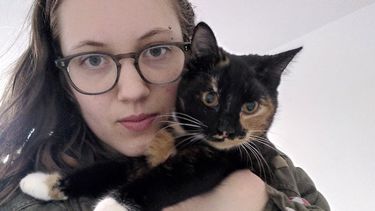One of my most recent GTA roles was as a facilitator for groups of students from across the Faculty of Engineering participating in a week-long design project. This year, I tried to focus on making my teaching and group supervision as accessible as possible.
The week before the projects started, I accessed LSPs for the students in my groups. When, how and who to discuss disability-related information with is often discussed in the DDSS PGR sessions. Many people (me included) find the idea of raising it with supervisors or teaching staff painfully intimidating – limiting our ability to clarify anything on there or ask for specific help or resources. In almost five years of being a student registered with DDSS, only one person has asked me about my LSP. While I found the conversation uncomfortable to begin with, it did mean I requested access requirements that I normally wouldn’t have.
I decided to meet this issue head-on and email all my students with LSPs to let them know I’d read the document and invite them to ask for any other help or access requirements. By doing this as an email, they could ignore it if they wanted to. I also put a little cat picture at the end, because an email about your disability can be quite intimidating.
Some of the LSPs emphasised letting students know what to expect at least 24h in advance. As I was writing a summary of the project week (seminars, group sessions, presentations, deadlines etc), I realised that students without LSPs might well find it useful too. This rapidly turned into me emailing all my groups at the end of each day to remind them of key tasks and timings for the next day. It’s really hard to tell how many found this useful, but I didn’t get questions about deadlines or scheduling like I have on similar teaching assignments.
I also tried to give my students a range of different opportunities to ask questions. The “drink and cake” time at DDSS sessions gives me some space to think about what’s been discussed in the main session and formulate that into questions. In other contexts, I often don’t think of questions until after the event has finished. I deliberately put in time to ask questions after breaks as well as during/after teaching, and in smaller group settings as well as a full classroom. When someone asked a question that I thought might be relevant to others in the room, I shared the information with other groups without naming the questioner. When students asked me questions I couldn’t answer, I gave them information and options to help them to make their own decision. Towards the end of the week, students were more willing to ask me to give feedback on elements of their work and double-check decisions they’d made independently.
It’s really hard to tell exactly what works and what doesn’t, when it comes to making a learning environment more inclusive. Many of my first- and second-year students don’t yet know what helps them learn well in a University context. The DDSS mentoring sessions have helped me to understand what’s helpful for myself and for others, so I hope I’ve been able to pass some of that on to my students.


